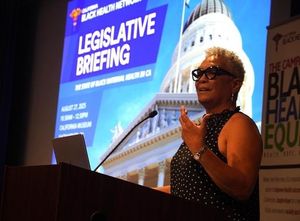Accidents involving household items are far too common, but the recent events surrounding the case of Rosalind Walker, who tragically died after becoming trapped in her adjustable Sleep Number bed, strike a particularly somber chord. On October 14, 2014, Walker, then 80, purchased the bed, which was marketed with the promise of comfort and adjustable features. Nearly eight years later, on March 1, 2023, the seemingly harmless bedroom piece malfunctioned, leading to dire consequences for the elderly woman.
Rosalind Walker found herself caught between her mattress and the wall of her home in Godfrey, Illinois—an ordeal she would endure for two agonizing days before emergency services were able to rescue her. When they finally reached her, she was rushed to the hospital with injuries substantial enough to require hospice care, where she later passed away on April 3, 2023. Her daughter, Angela Moan, was left with the burden of her mother's suffering, as well as the responsibility of seeking justice through the legal system.
On December 10, 2024, Angela filed a wrongful death lawsuit against Sleep Number and the bed's manufacturer, Leggett & Platt, alleging serious design flaws. The lawsuit claims the adjustable bed malfunctioned without warning, causing her mother to become trapped. It argues the design failed to include adequate warnings and safety measures—essentially putting the responsibility squarely on the manufacturers for their perceived negligence.
According to the lawsuit, the lack of audible alerts and any sort of safety release mechanism meant there was no way for Walker to escape her predicament. The statement made by Angela reflects her outrage and sorrow, emphasizing, "She suffered the entire time she was trapped." While legal battles often follow tragic incidents like this, the emotional toll on Angela and the rest of the family is immeasurable, as they process both their grief and their quest for accountability.
Sleep Number’s response to the lawsuit has been cautious. A spokesperson extended condolences but maintained the safety of their products, stating, “The suit alleges the malfunctioning adjustable base purchased in 2014 was a contributing factor in the death of Rosalind Walker.” They added they were only informed of the incident after the lawsuit had been filed. This demonstrates the delicate balance companies must strike when facing public scrutiny and legal challenges.
The involvement of Leggett & Platt also adds another layer of complexity to the case. These types of beds, lauded for their adaptability and comfort, often include mechanical components and warranties—intended to assure customers of their reliability. But when such products cause harm, it raises questions about the robustness of safety protocols and product testing standards. Consumers trust these leading brands to prioritize their safety, and incidents like Walker’s seriously undermine this trust.
Walker was more than just another statistic; she was described fondly by her family and community. A charter member of Resurrection Lutheran Church and someone known for her active participation within her community, Rosalind’s life was rich and filled with connection. Angela, along with Walker’s grandchildren, are now left to reminisce about the years they shared with her, recollecting her love for gardening, travel, and her famous card games. Friends and loved ones took to social media to express their condolences and share their memories of her vibrant spirit.
This legal battle is not just about compensation for medical bills or emotional suffering; it's also about seeking accountability and ensuring safety for other consumers. Unfortunately, cases involving accidental deaths and severe injuries within the home are becoming increasingly common, as reported incidents related to household products continue to rise. The outcome of Angela’s suit could potentially pave the way for greater transparency and safety standards from manufacturers. Whether the family will succeed legally remains to be seen, but the emotional ramifications of such loss are undeniably significant.
While Jessica’s family grapples with their grief, countless others will reflect on the reliability of their own household items. Angela’s pursuit of justice for her mother is emblematic of the struggle many families face when trying to make sense of unexpected tragedies, with many individuals hoping for change to prevent future occurrences. The focus now shifts to the courts as Angela seeks not only answers but meaningful change.
For now, the story of Rosalind Walker serves as both a cautionary tale and reminder. While home should be the ultimate sanctuary, accidents can shatter lives, prompting discussions around product safety and consumer rights. How this case plays out will be watched closely, providing lessons not just for those involved, but for industry players and consumers alike.



